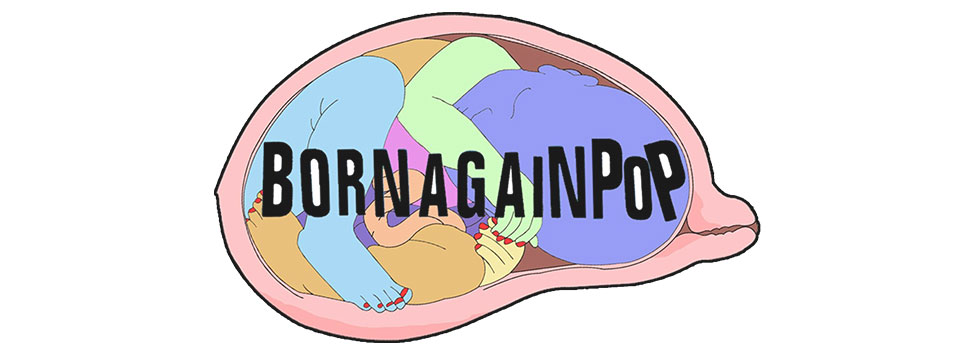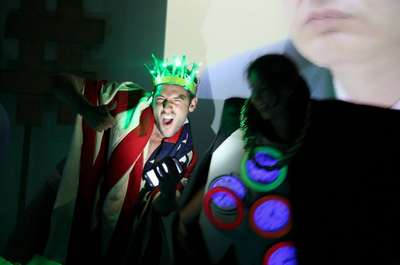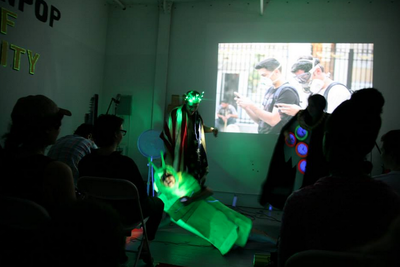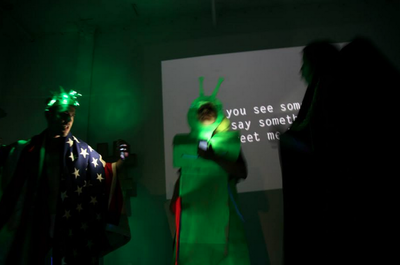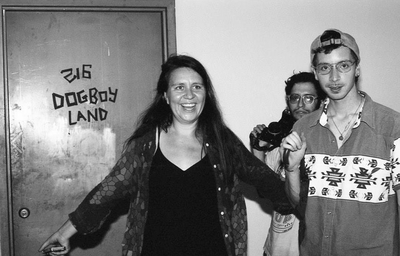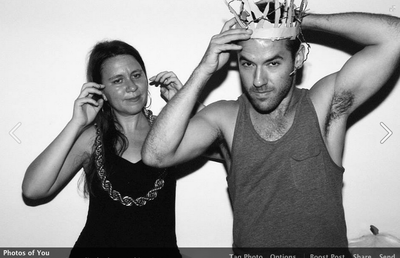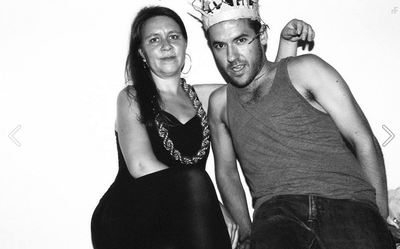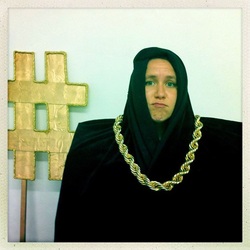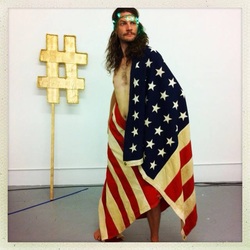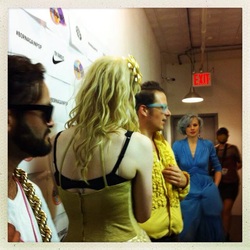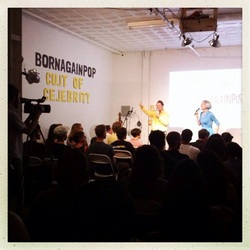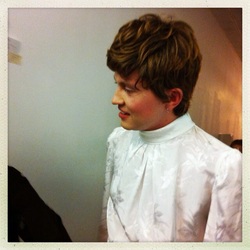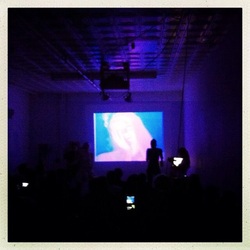(A)(U)N-AMERICAN makes tableaus out of trophy photographs taken by perpetrators rejoicing in their crimes such as Abu Ghraib and the Steubenville rape case. How does the availability of cameras change our relationship to silence through a broader viewership, and can we shift the signification of a photograph by changing it's context and community? The photo has always stood as documentation which is a form of monumentality, claiming the necessity of a moment to be remembered. Sometimes these monuments involve the shaming or domination of one party over another. The internet allows us to share the perspective of those who are abused and to give them the platform to be witnessed by a larger population. The voiceless can spread their message past the confinement of an oppressive community which opens up the balance of right and wrong. The expanded pool breeds a larger look at the aggression of humanity. The outreach of a problem allows it to be judged by a wider audience. This extends an evaluation of human rights beyond the situational prejudice of a closed social group. Photographs intended as trophies are problematized once the broader public has deciphered what is real justice according to our shared sense of the human condition. The roles of power are subverted by the expansive eye of those going online, the power of this new form of communicating revealed itself in the revolutions organized through Tweets and Facebook, it has allowed a new form of speech to occur between people,
(A)(U)N-AMERICAN makes tableaus out of trophy photographs taken by perpetrators rejoicing in their crimes such as Abu Ghraib and the Steubenville rape case. How does the availability of cameras change our relationship to silence through a broader viewership, and can we shift the signification of a photograph by changing it's context and community? The photo has always stood as documentation which is a form of monumentality, claiming the necessity of a moment to be remembered. Sometimes these monuments involve the shaming or domination of one party over another. The internet allows us to share the perspective of those who are abused and to give them the platform to be witnessed by a larger population. The voiceless can spread their message past the confinement of an oppressive community which opens up the balance of right and wrong. The expanded pool breeds a larger look at the aggression of humanity. The outreach of a problem allows it to be judged by a wider audience. This extends an evaluation of human rights beyond the situational prejudice of a closed social group. Photographs intended as trophies are problematized once the broader public has deciphered what is real justice according to our shared sense of the human condition. The roles of power are subverted by the expansive eye of those going online, the power of this new form of communicating revealed itself in the revolutions organized through Tweets and Facebook, it has allowed a new form of speech to occur between people,
